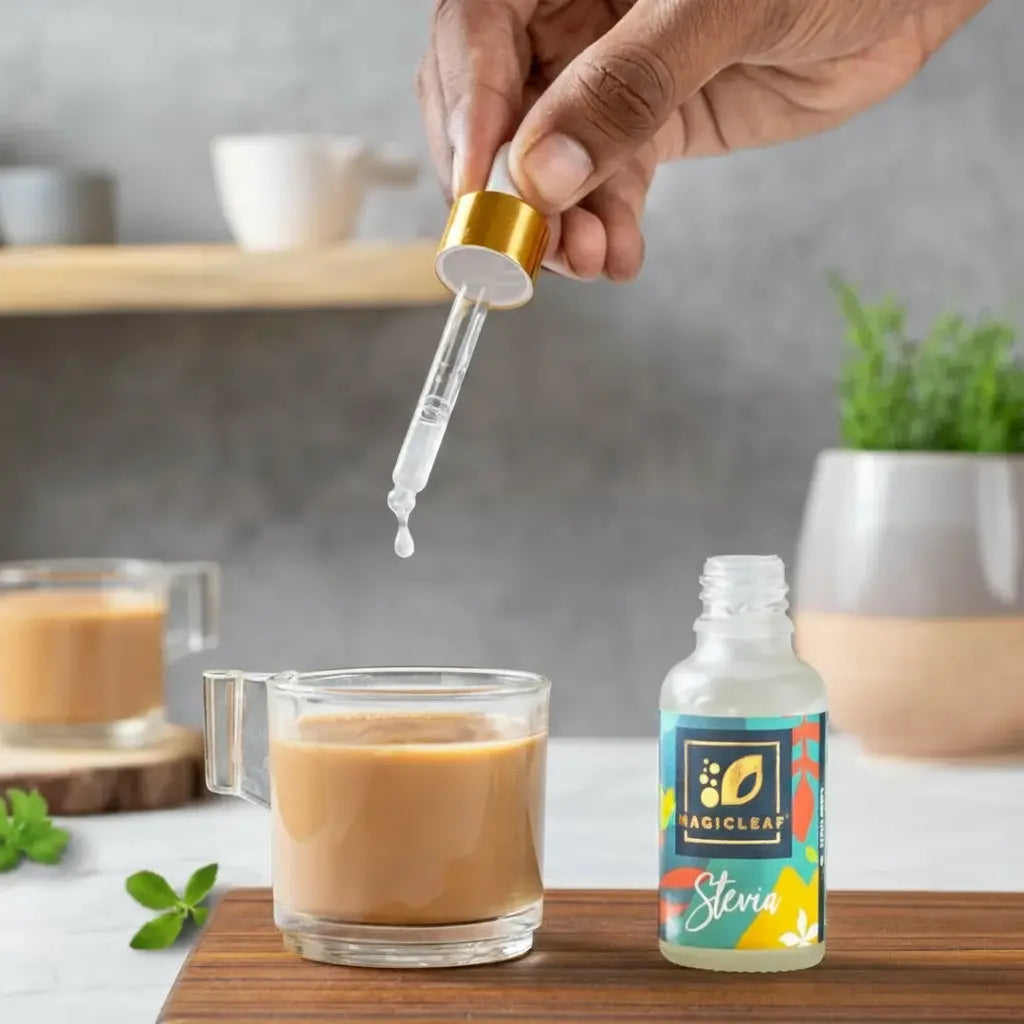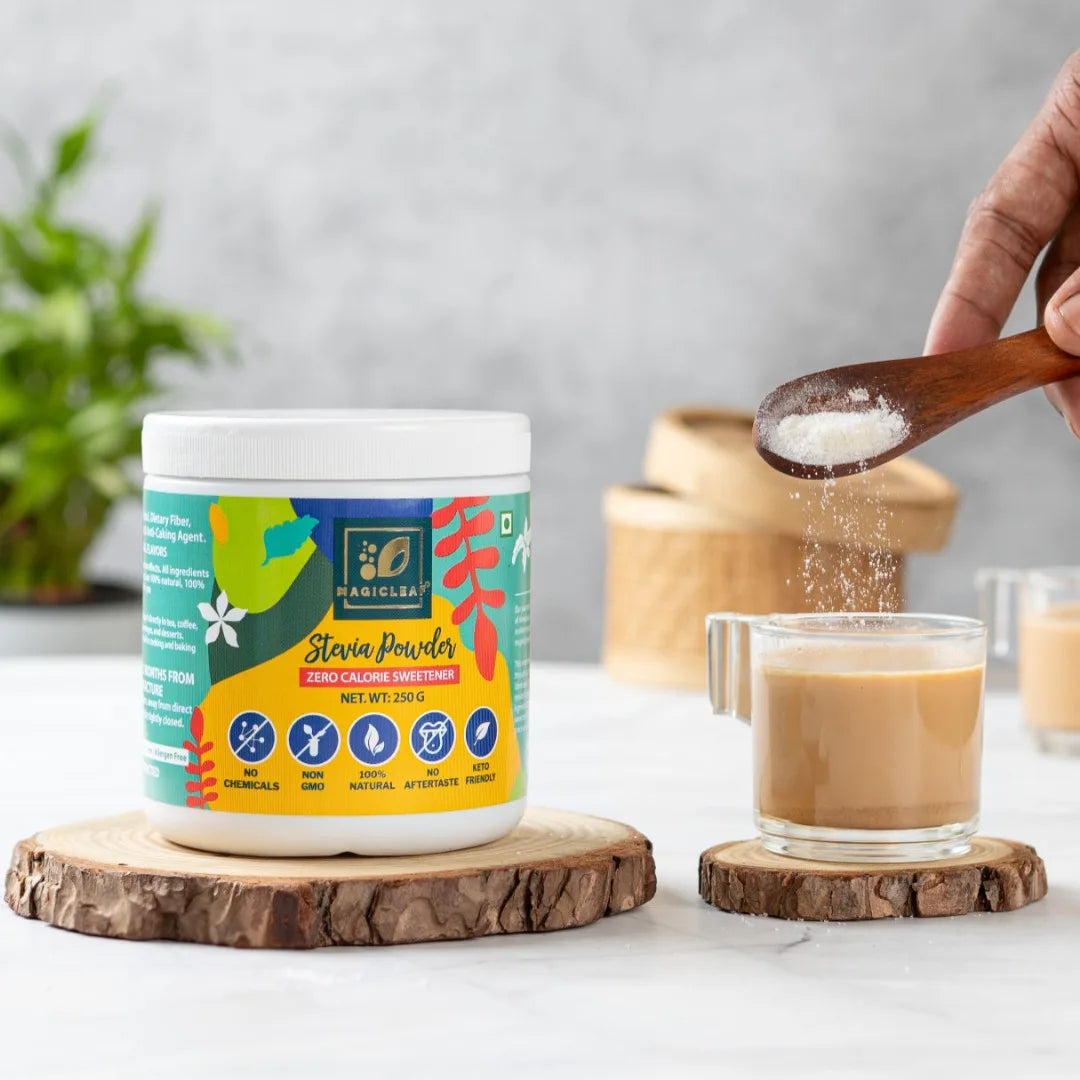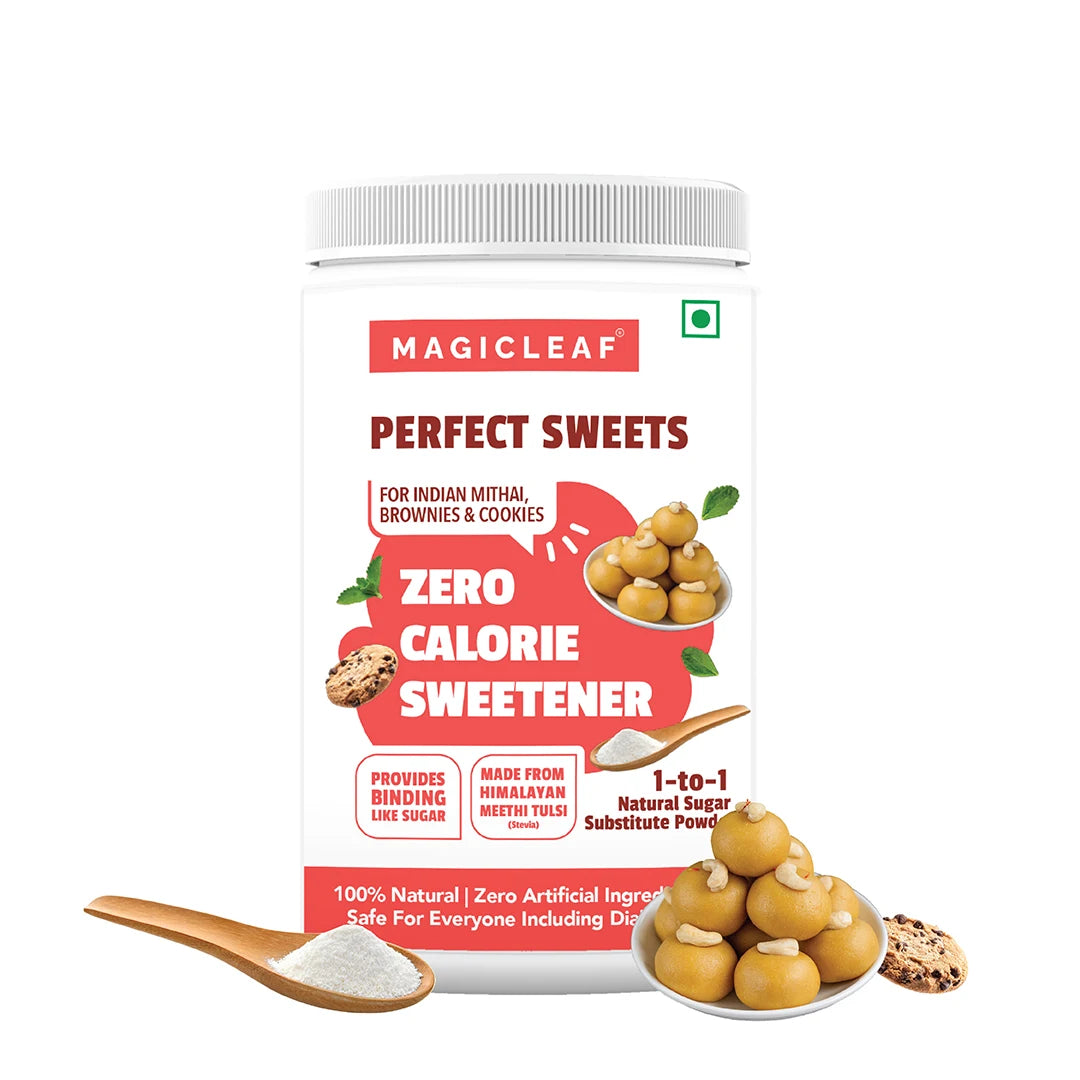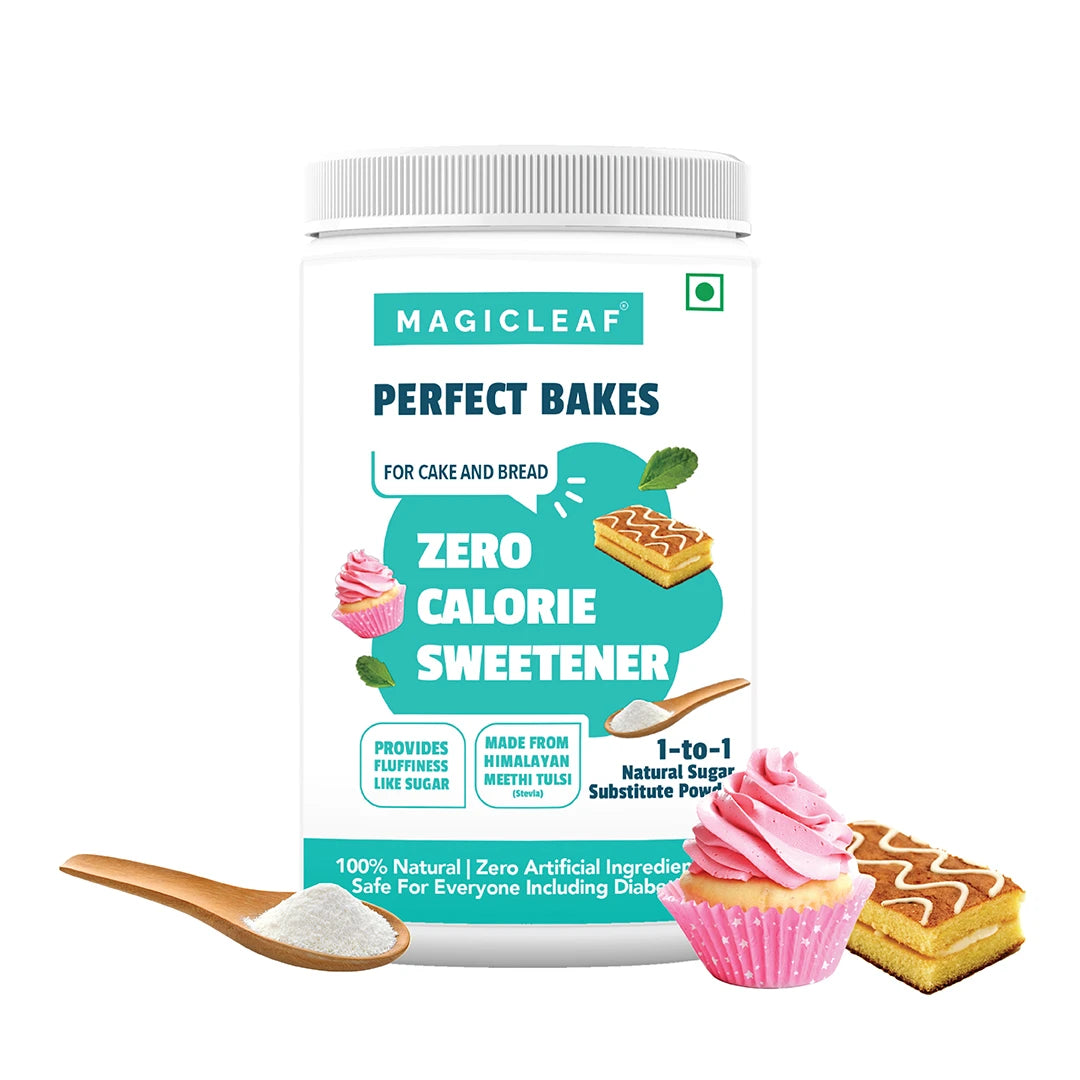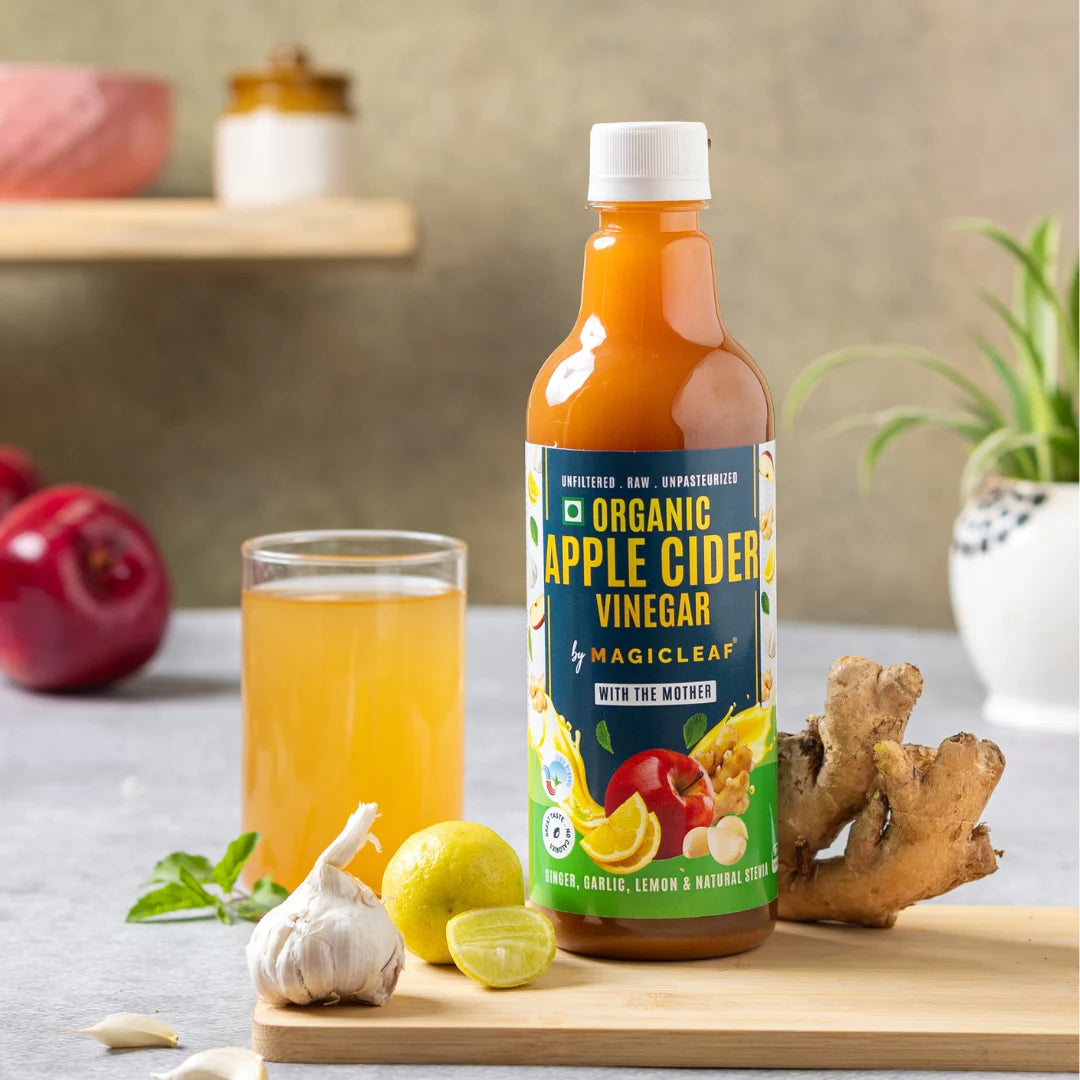In the quest for healthier alternatives to sugar, Stevia has emerged as a popular choice, celebrated for its natural sweetness without the caloric baggage. This article delves into the taste profile of Stevia and unravels the mystery behind the common pairing of Stevia with erythritol in various products.
Understanding the Taste of Stevia :
Stevia, derived from the leaves of the Stevia rebaudiana plant, has a unique taste that sets it apart from traditional sugars. Often described as intensely sweet, Stevia's sweetness can be 30 to 150 times that of sugar. The initial perception is a rapid onset of sweetness, followed by a subtle, slightly herbal aftertaste. Some people may detect a hint of licorice or mint, but the overall taste experience can vary from person to person.
The sweetness of Stevia is attributed to two main compounds found in the leaves: stevioside and rebaudioside. These glycosides not only contribute to Stevia's sweetness but also play a role in the unique taste profile that has made it a favourite among those seeking a natural sugar substitute.
Why Erythritol is Used in Stevia Products :
Erythritol, a natural and organically occurring compound, is often blended with Stevia in many commercial products, from tabletop sweeteners to baked goods and beverages. This combination serves several purposes, enhancing the overall taste, texture, and functionality of the end product.
-Improved Taste and Mouthfeel :
Erythritol provides a bulk and texture similar to that of sugar, mitigating the sometimes-perceived aftertaste of Stevia. This combination results in a more balanced sweetness and a smoother mouthfeel, closely mimicking the sensory experience of traditional sugar.
-Reduced Caloric Content :
Erythritol is a virtually zero-calorie sweetener, contributing minimal calories to the overall product. By combining Stevia with erythritol, manufacturers can create sweetened goods with a reduced caloric impact, catering to the needs of those watching their calorie intake.
-Improved Baking Performance :
Erythritol, unlike some other sugar alcohols, can withstand high temperatures without losing its sweetness. This makes it suitable for baking, where maintaining sweetness and structure is crucial. When combined with Stevia, it provides a stable and reliable sweetening solution for a variety of baked goods.
-Balancing Sweetness :
Erythritol has a sweetness level that is approximately 60-70% that of sucrose, making it an ideal companion to Stevia. The combination allows for more precise control over the sweetness of the final product, ensuring that it closely matches the taste preferences of a broad range of consumers.
-Dental Health Benefits :
Erythritol, unlike sugar, does not contribute to tooth decay. Its use in conjunction with Stevia not only enhances the sweetness but also supports dental health, making it a favourable choice for those seeking alternatives that are kinder to their teeth.
In the dynamic landscape of sugar alternatives, the combination of Stevia and erythritol emerges as a powerful duo, offering a sweet solution with reduced calories and improved taste. While Stevia contributes intense sweetness with a unique herbal undertone, erythritol complements it by providing bulk, texture, and a more traditional sugar-like experience.
As consumers increasingly seek healthier choices without compromising on taste, the synergy between Stevia and erythritol continues to play a pivotal role in the development of a wide array of delicious and health-conscious products. Whether you're baking at home or selecting a sugar substitute for your daily cup of tea, understanding the partnership between Stevia and erythritol opens the door to a world of satisfying sweetness with a dash of wellness.
DISCLAIMER: The articles and other health-related information provided on our website is intended for general informational purposes only. It is not a substitute for professional medical advice, diagnosis, or treatment. Always seek the advice of your physician/doctor or other qualified health provider with any questions you may have regarding a medical condition. The content on this website, including text, graphics, images, and other material, is not intended to be a substitute for professional healthcare advice, diagnosis, or treatment. The information on this website may be periodically updated and may not reflect the most current health recommendations or research. Always consult with a qualified healthcare professional before starting any new diet, exercise program, or making changes to your healthcare regimen. If you have or suspect you may have a medical condition, promptly contact your healthcare provider. By accessing and using this website, you acknowledge and agree to this disclaimer and our Terms of Service.


